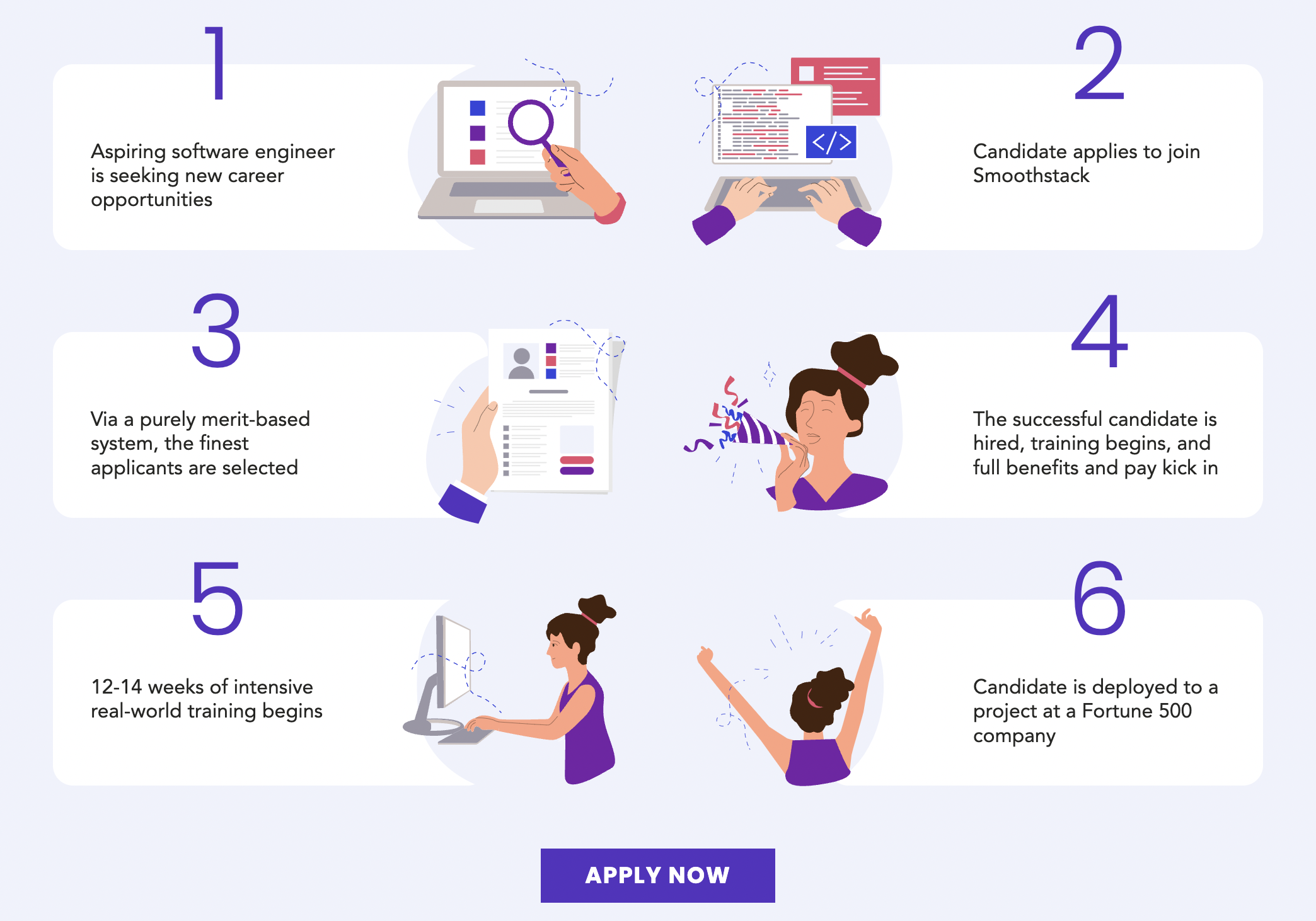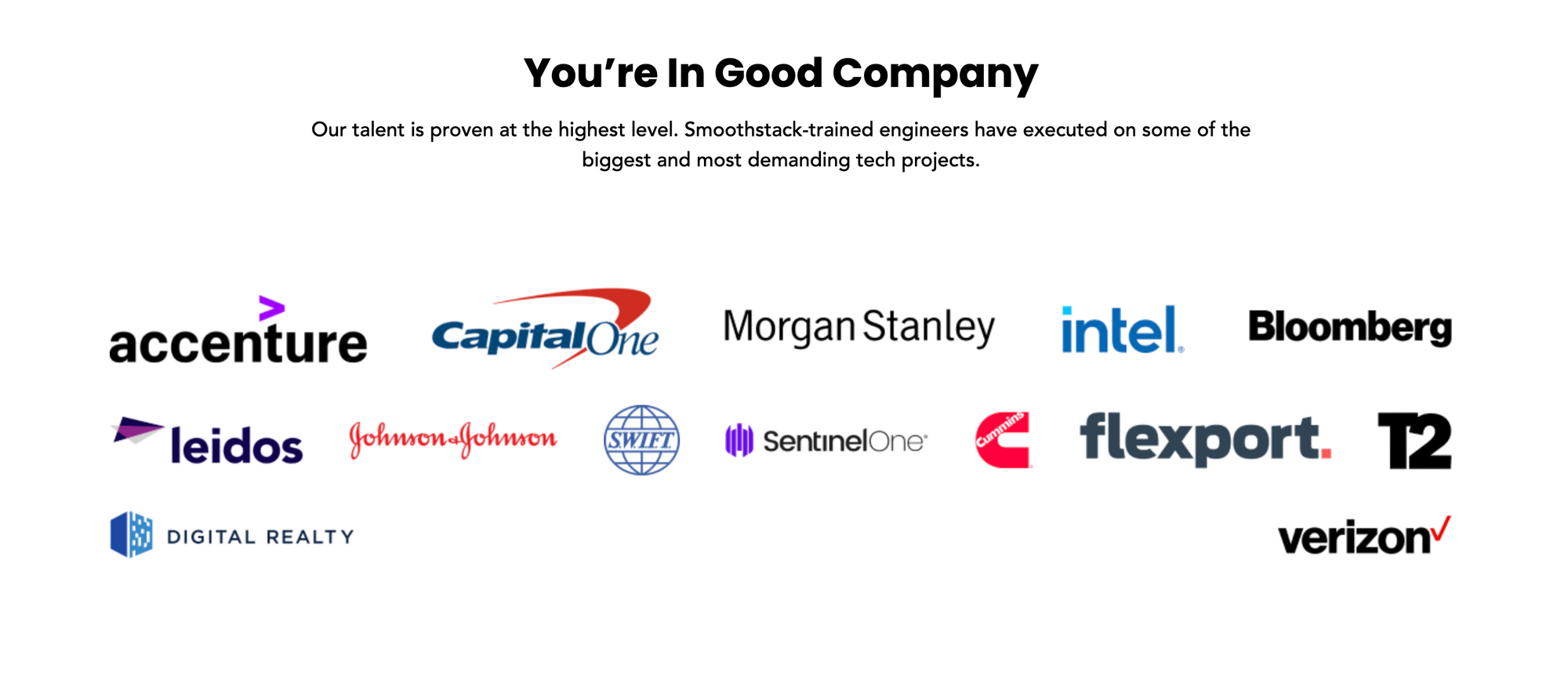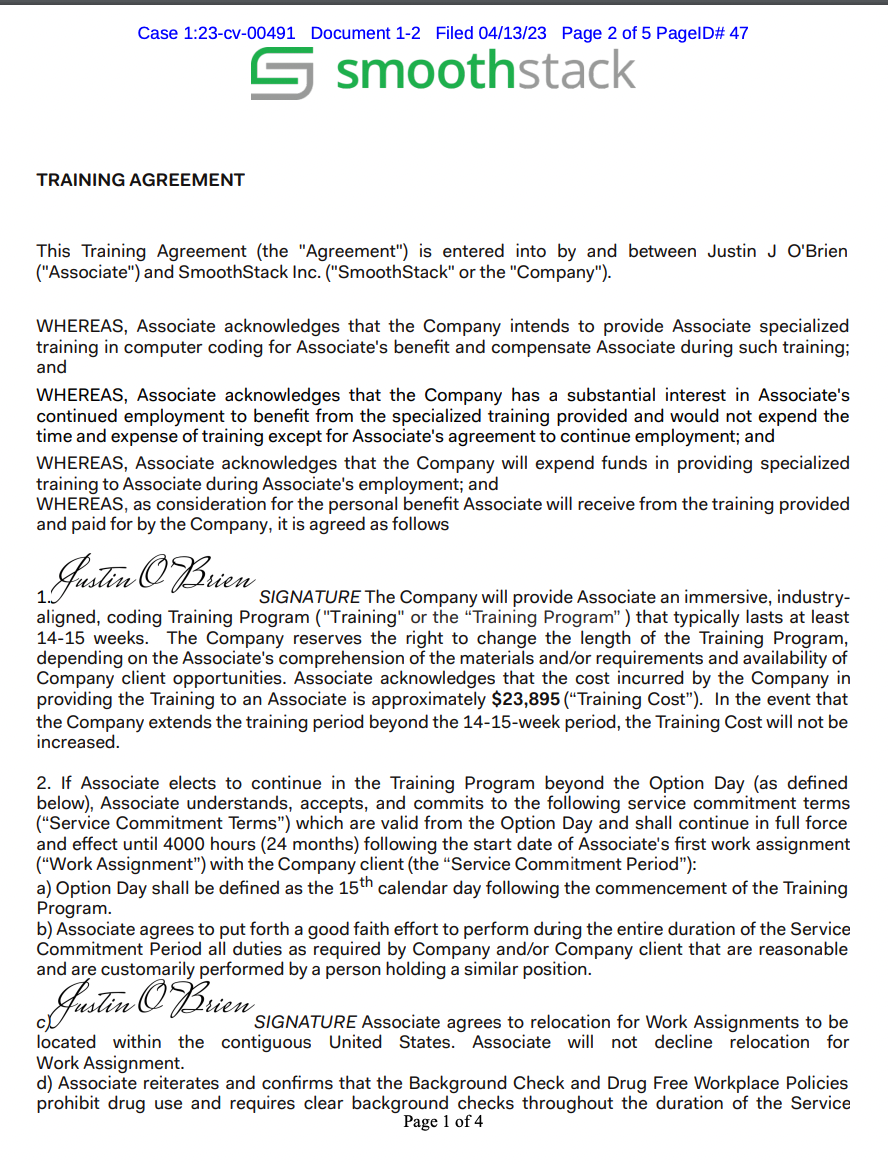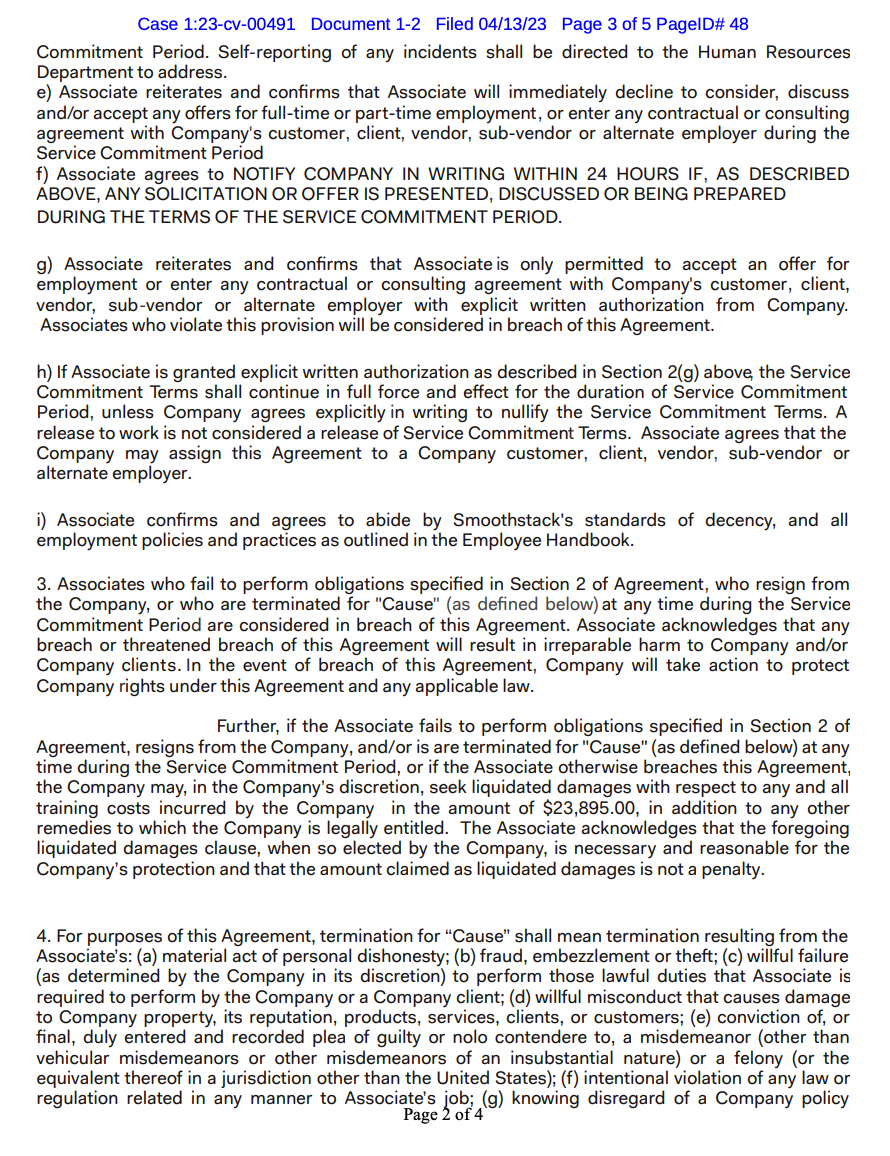You do this indenture or they put enough debt on you that it will ruin your life
It’s a very bleak story about how government’s public mission is being perverted in every imaginable way

A couple of nice readers have endowed four chairs at the Hell World Institute of Being Mad (bought some gift subscriptions for me to give out). If you'd like a paid sub but can't afford it let me know. These will go quick though. The rest of you with cash to burn hit the button baby.
Back in July I wrote about a class action suit being brought against the company PetSmart concerning a series of unfair and illegal labor practices. Specifically egregious were the terms of a training repayment clause in workers' contracts which said that if you didn't work exclusively for PetSmart for two years you would be required to pay back $5,500 the company estimated that it invested in teaching you how to do the job. Sounds a lot like indentured servitude! It also sounds a lot like what the Student Borrower Protection Center calls shadow student debt.

That is all still playing out in the court but in the meantime the Student Borrower Protection Center – who were involved in filling that class action – have uncovered another company who they say are using similar Training Repayment Agreement Provisions or TRAPs as they call them. This week they filed a class action suit (read the text here) on behalf of a man named Justin O'Brien who was employed by a company called Smoothstack (lol) in Virginia. The list of fucked up conditions O'Brien alleges that he and others were subjected to at the company is like a greatest hits of old fashioned labor violations – underpayment, withheld pay, non-competes, for-profit college style bullshit, outsourcing, gig work, etc – combined with new fangled tech world labor violations of the future. Who says there's no innovation left?
In short Smoothstack promises to train workers in the IT field as a first step toward gaining employment at a series of huge companies that they boast they have a relationship with. First workers must complete a three week training period for which the suit alleges they are unpaid. Next comes another five months of training at minimum wage. After that – and only 8% of people make it that far they are proud to say – the trainee is "promoted" to go do piecemeal gig work at Intel for example for a higher wage. They do not become an employee of Intel mind you they are still just some guy from Smoothstack as far as Intel is concerned. Once that job is done they are reverted back to Smoothstack's minimum wage to wait around until the next gig.
All the while O'Brien alleges workers are made to work something like eighty hours while only being paid for forty.
Here's the real kicker though: Like with PetSmart Smoothstack makes these people sign an agreement saying that they cannot leave the job until they've billed 4,000 hours at one of the outside clients or else they're on the hook for a penalty in the area of $23,000. And if you start to grumble about it they can just put you on the sidelines not accumulating any billable hours. Hours worked at Smoothstack and not for one of the clients do not count toward the 4,000 you need to achieve freedom.
Sounds pretty fucked right?
“Using the tricks of the for-profit trade schools before it, Smoothstack is luring low-wage workers using false promises of rigorous training and a lucrative career in order to trap recruits in a modern-day indenture scheme,” SBPC managing counsel Persis Yu said in a statement. “Justin’s story should be a warning to giant corporations across the economy—dressing up age-old worker exploitation in a shiny tech-tinged wrapper won’t keep you out of court. Smoothstack’s use of debt TRAPs to discipline workers is coercive, cruel, and corrupt.”
One more funny little kick in the balls though. The company O'Brien was doing work for was Accenture who... wait for it... manage the student loan system for the federal government. (They were awarded an almost billion dollar ten year contract to do so back in 2015.)
You may remember Accenture from when they fucked up in November sending out an email to 9 million student loan debtors saying they were eligible for forgiveness. Woops.
I wanted to hear more about the details of this class action suit and what they say is going on at Smoothstack so I called up SBPC director Mike Pierce to talk me through it down below. (I sent a request for comment to Smoothstack but they have not responded.)
It's the tenth anniversary of the Boston Marathon bombing on Monday so it would be a good to go read this one if you never did.

In 2011 three men were murdered in Waltham, MA. They were found with their throats slashed, almost decapitated, in what was described as “a bloodbath.” The crime scene seemed to have been arranged to send a message. It was the 10th anniversary of 9/11. One victim, Eric Weissman, was a friend of Susan Zalkind, my friend. In her Hulu series The Murders Before the Marathon her decade of reporting leads to an important question:
"If police investigated this case thoroughly would they have prevented the Marathon bombing?”
Congrats to the New York Times on their work having real world ramifications! That's what every journalist wants right?
Missouri Attorney General Andrew Bailey's blatantly unconstitutional order imposing new restrictions on gender affirming care for trans people of all ages cites coverage from the New York Times in justifying an 18 month waiting period for receiving care pic.twitter.com/AINdnQrDtT
— Ari Drennen (@AriDrennen) April 13, 2023
As I wrote before "...these neutral journalists won't shut the fuck up with their shitty little neutral questions. We're not quite there yet but I'm worried that if they keep asking them for long enough they might finally get the answer they're really looking for."

Hey check out the book that many people are saying "actually exists."









Ok here's me and Mike Pierce of the SBPC.
For people who might not know, tell us about the Student Borrower Protection Center.
We’re a non-profit that does a mix of policy advocacy, litigation, and research, fighting on behalf of working people who get stuck with debt when they try to pursue training or higher education. We’ve been working with partners in the labor movement and civil rights movement to lead the fight to cancel student debt for everybody. But we’ve also spent a great deal of the past year talking about what we call shadow student debt. These are all the other ways that workers get themselves into debt when trying to build skills or move up in the economy. That’s the focus that brings us to this particular issue.
So what is going on here is an employee of a company called Smoothstack – lol by the way – is alleging they were withholding pay, and even worse, kind of like in the PetSmart case I wrote about that you all worked on, were pressing him into a form of what sounds a lot like indentured servitude.
Yup. So for a long time employers invested in workers and helped them build skills, and everybody won. Employers got a better trained, more dynamic workforce, employees got paid for the skills that they built, and they didn’t have to go into crushing debt. Over time we’ve seen big companies turn to all kinds of tricks and traps in contracts to make sure they can exert power over workers, they can undercut workers’ wagers, and undercut their bargaining power. We saw that more than a decade ago with the sort of version 1.0 of non-compete agreements. For example, Jimmy John's was making people making sandwiches sign non-compete agreements so they couldn’t go work at Subway. This is sort of another flavor of student debt, and another flavor of these trick contracts that allow companies to exert power over workers so that they can’t demand better wages, they can’t shop for a better job. It has all these spillover effects on the way the labor market works. It prevents people from getting out of bad situations when there’s abuse, or sexual harassment. It prevents people from getting out when the job just doesn’t live up to their expectations.

This case is really a combination of all of these horrible things that are happening in corporate America right now coming to a head in the business model of a tech company called Smoothstack. What Smoothstack does is it recruits people much like a for-profit college would have ten years ago. It promises to help you build skills, get a better job, and move out into the economy and build a better economic life. And they advertise that Smoothstack helps you get work at these huge corporations that everybody has heard of. So the brand and the strength of their corporate partners is the pitch here. You want to go work, as a tech worker, at Intel, or do coding for a big government contractor like Accenture. They use the brand of these bigger companies to get people in the door. And when they get there, they’re first told they need to do three weeks of unpaid training. This is where they’re asked to sign the first of these TRAPs, training repayment agreement provisions, that put them on the hook for tens of thousands of dollars of debt if they don’t work all the way through the training process, and then perform, basically, indentured labor, for these big corporate clients that hire Smoothstack for gigs.
What Smoothstack is doing is stealing wages from its workers during training, it’s not paying them. Then they move into the next tier of training and they are paid forty hours a week at minimum wage to do projects for these big companies, and often working eighty hours a week or more. Our client was working on average eighty hours a week during this next stretch of training, while being paid minimum wage for forty hours.

So there’s two of the big fuck yous: underpayment for hours worked, and just this insane concept that you somehow go into debt for working for someone. It’s unconscionable.
Absolutely. Unconscionable is the word we use in the lawsuit. This isn’t even a law, it’s a principle of law in America. That you can’t force people to sign unconscionable contracts... The idea that you can't contract out your labor for less than minimum wage just because you signed on the dotted line is a principle of labor law that has existed since the New Deal. And even before that, the idea that you can’t contract your labor in a way that you can’t get out of it is like a core American legal principle.
Another thing I love about this case, something I write often about, is that these giant companies, nobody wants to actually employ anyone anymore. So Smoothstack, from what it seems they’re saying on their website, advertise that you’re going to train with us for six months or so, then you’re going to go get a job at Intel or whatever. But that’s not the case as this guy is alleging. Instead you go get a temporary contractor gig with one of these companies, and once the specific job is complete, you get sent back to Smoothstack. You’re never employed by Johnson & Johnson or Morgan Stanley or whatever. You’re a fake employee. Is that right?
Yup. Your just doing a gig. They basically took the gig economy and put a wrapper around it so they could sell the gig economy to big corporations. Without the corporations having to deal with messy 1099s and independent consultants in all the others ways that many other companies that cheat workers that are doing full time work. Smoothstack is just a subcontractor to these big corporations. Projects go to Smoothstack, and these underpaid workers do the work for Smoothstack, and never have any relationship at all with the Fortune 500 companies that are on Smoothstack’s website.
Is this somewhat novel because it’s IT workers? I know all of these big companies, if you work on the janitorial staff, or in the cafeteria, or some other auxiliary role, you don’t actually work for that big company, you’re a contractor. Does this happen a lot now with “skilled work?” Not that I like that term but you know what I mean.
I don’t think that’s the difference here. You’re totally right, but increasingly it hasn’t just been blue collar jobs that have been outsourced to staffing firms. There are legal staffing firms, and lots of other pieces of the economy where agencies provide sort of faceless workers to big corporations so that corporations don’t have to pay for people’s careers and benefits. What makes this different I think is the combination of the for-profit college pitch with this model of outsourcing work to independent contractors. Instead of outsourcing to an independent contractor they’ve built a company that can be the staffing and the training. And let debt drive the whole machine so they can recruit trainees instead of workers. The bargaining between the trainees and the companies they’ll eventually do work for is totally absent. You don’t know what you’re signing up for. You think you’re signing up to build skills and to get placed in a job, but instead you’re being hired by a company to do the shittiest work in the IT field that these companies don’t want their own staff to have to do.
This is like a greatest hits version of the ways we’re fucking over labor now. So say more about what this employee alleged happened to him.
It is. So our client Justin O’Brien, and this is really a very dystopian version of how this company operates, because of the job that he took… But he completes his training, the second part where he’s being paid minimum wage, and he gets assigned his first gig. That gig is at this company Accenture. Maybe you’ve heard of them, maybe you haven’t. They’re a huge company but not a big brand. That’s because a big part of their business is being a federal contractor helping the federal government outsource good, union, career federal employee jobs to a big for-profit company that can pay cut rate wages. This is a legacy from the Clinton administration’s approach to running the government that has just stuck around for too long. Accenture runs big chunks of the bureaucracy, but that includes the actual federal student loan system.
Pretty ironic!
Yeah. They are the contractor that makes the loans. Our client Justin got this gig, so he’s having his wages exploited, he’s being pushed into this shadow student debt, all to build the student loan system that the government is going to use to collect from the rest of us.
Too on the nose for dystopia.
It’s dark! It’s a very bleak story about how government’s public mission is being perverted in every imaginable way.
So Justin gets into this job, and he gets a pay bump. That’s how it works. While you’re working in the gig you get placed in you are making more money. It was about half of what we estimate prevailing wages for a software engineer doing this kind of work should be, but he was making $30 an hour. He was on that job, but he also began to raise questions about the unfair terms of this deal he had signed up for. In particular the idea he was forced to sign a contract that required him to bill a Smoothstack client for 4,000 hours of work before he could be released from this $23,000 debt that they had him on the hook for. And that’s why we call Training Repayment Agreements TRAPs. This is the trap. You do this indenture, or they put enough debt on you that it will ruin your life.


How is that legal?
It’s not. The sad truth of America in 2023 is that big corporations get away with stuff that isn’t legal all the time. That’s just how business works. But it’s not legal. Justin reached out for help. He has a great team of lawyers that brought us in to help get this case across the finish line, but he has a great team supporting him. And it’s not just Justin, it’s a class action. Every one of these TRAPs is illegal under Virginia law. Every single one of these TRAPs is void or unenforceable. But we need a court to stop this company from springing these TRAPs on all these workers.
So hold on let me get this straight. He did the three weeks of unpaid training. Another six months or so of training minimum wage before he got contracted out, at which point he got paid alright doing a gig. Then after the second company says they don’t need you anymore you get bumped back to Smoothstack where you revert to minimum wage? Do I have the details of what he’s saying happened to him correct?
Yeah. And you only get credit toward working off your indenture in the time you're working on a gig. There are many heinous things about this story, but the thing that feels incredibly unfair about all of this is that you are beholden to this corporate master to place you in jobs that let you work off your contract. And if it decides that you’ve been difficult, which is what happened with Justin, they can pull you off your contract work. That doesn’t do anything to help you get off the contract. It just leaves you sitting in limbo making minimum wage waiting for Smoothstack to decide you’ve been in the penalty box long enough and it’s time for you to move on to the next gig.
So he says they thought he was starting to be a pain in the ass, and they penalized him for it?
He got a lawyer. He recognized he wasn’t being treated fairly and the system was rigged against him. The lawyer sent a letter to the company, and a bunch of things happened that shouldn’t happen at a sophisticated company that cares about following the law. One of those was the company retaliated against him. They pulled him off the Accenture contract and ultimately fired him. But the other thing that happened is that the COO of the company reached out to him directly, not through his lawyer, and tried to negotiate some kind of deal with him. We got brought in after the lawyers that are on the legal team bringing this case had had this interaction with the company. The company had expressed some interest in settling the case, then reached around the lawyers to basically talk Justin off of it. All of that feels like the actions of a company that understands it’s breaking the law, and doesn’t care about following the rules put in place to protect workers. It just wants to make problems go away and continue cheating everybody else.
That doesn’t sound especially ethical. Have they responded at all yet?
No. We filed the lawsuit on Justin’s behalf last night. We haven’t heard from them since then, but they haven’t been communicating with our partners for a few weeks now. So this was the necessary next step to be able to fully exercise Justin’s rights under the law.
Have you heard from other workers in the same situation yet?
I can’t comment on who we’ve talked to, we’re worried about retaliation, but I will say that we have a lot of evidence that Justin is not alone, and his experience is representative of what Smoothstack does to its workers. We are in court on Justin’s behalf and on the behalf of all the other workers there who have had this experience. These TRAPs are the way that Smoothstack does business. Every single one of Smoothstack’s workers, if they make it through the training process, and into gigs, had at least one of these TRAPs that they’ve signed onto.
You’ve seen documentation of that?
Yes, we have seen other Smoothstack worker TRAPs.
Where do things stand with the PetSmart case?
PetSmart is trying to force our client BreAnn Scally into arbitration. We are in federal court in California in that case trying to stay in court. I’m not sure if you’ve written much about trying to use arbitration to deny people their rights, but it is another example of the ways corporations pay lip service to people’s rights, then basically run their own separate secret court system, with their own judges that they pay for, who produce outcomes that are not the same that you would get in a court of law. And who prevent you from getting relief for a class of people. So the contract our PetSmart client signed is also an unenforceable contract. Every PetSmart groomer working in California should be free of those contracts under California law. We are fighting to stay in court in that case. We hope to hear back from the judge soon. We feel good about where the case is.
There’s been some movement to crack down on these TRAPs from lawmakers right?
Yeah, we’re actually seeing a few different signs of hope that the government is going to step in here and solve this problem. The thing that gives us the most hope is that the FTC, after we filed our PetSmart case, announced they were going to write rules to ban non-compete agreements. But as part of that ban on non-competes they’re going to take on TRAPs as well. TRAPs have the same effect as a non-compete agreement. They prevent people from taking their labor and getting paid fairly for their work, or moving to another employer, or bargaining with their employer. The FTC said it wasn’t going to just ban non-competes, but also de facto non-competes that have the same effect. The US Chamber of Commerce and big businesses everywhere are fighting tooth and nail to stop it from happening, but Lina Khan, the chair of the FTC, is a force of nature, and a huge supporter of workers’s right. But the FTC doesn’t cover the whole economy, so there are other places, the aviation industry for example… We built a case against this airline Ameriflight that we filed earlier this year that wouldn’t be protected by the FTC. So Pete Buttigieg needs to crack down on the labor practices of the airlines. There are other places where state lawmakers are looking to ban these contracts across their state economies.
Ameriflight, if I’m not mistaken, were training pilots, and if you didn’t work a certain amount of years for them you’d be on the hook for $30,000?
That’s right. They were running a pilot academy, where you signed up for the training… and they were training the workers, paying substandard wages, and using TRAPs to keep them locked into the jobs.
I know we’ve said it like ten times already but I still can’t get over how vile these TRAP things are. A regular non-compete is one thing, of course I don’t support them, but to say you’re going to have to pay thousands of dollars for the privilege of quitting your job? I don’t think we can overemphasize how absurd that is.
Absolutely. It’s a happy accident the industry was already calling them Training for Payment Agreements, we just threw a P on the end. It really does tell a story in its name though. In some ways it's worse than a non-compete, because that debt will follow you, and ruin your economic life for years. Smoothstack has been suing its former workers in state court in Virginia when they resigned because they can’t deal with it.
Wait they actually have sued people who quit to get the money back? Have they had any success?
There was a judge that had previously called these contracts unconscionable. The company presumably stopped enforcing that individual contract under penalty of this court order. But then continued to have its workers sign these contracts month in and month out, even though a court had found one of them to be unconscionable. That’s part of why we brought this class action.

It really is a perfect storm of capitalism Hell World here.
Yes.
I’m looking at the Smoothstack website and… actually some of these people look like AI generated faces. Not seeing many hands.
Even the name feels like a company that could’ve been spit out of ChatGPT or whatever. The whole thing feels like an awful tech fever dream that was cooked up by a bunch of people that wanted to figure out how to exploit workers at scale.
It really is amazing. I'm honestly impressed. What a terrible country! We should all be ashamed of ourselves. While you're here, any hope for student debt relief in your eyes?
We are fighting every day. We are clear-eyed about what’s going to happen with the Supreme Court here, but the president has the tools to be able to cancel student debt for everybody. Even if he loses on this legal theory we hope that he’s going to go back to the well. He’s told a story that is right. The student loan system can’t get flipped back on without an enormous cost to people that shouldn’t be paying these bills at all. You have this huge mass of people that have been promised debt relief, and believe that the president is going to deliver, and this same court that was willing to snatch away bodily autonomy from half the country is willing to snatch away the economic rights of folks that are just trying to get by, and is poised to make Joe Biden break that promise. We shouldn’t let him do it.
We joined with our partners in the labor movement and the civil rights movement, and mayors of more than forty cities, and twenty two state attorneys general all signed briefs urging the Supreme Court to recognize people’s rights to that cancellation, and to not make new law, and we’ll see. We’re expecting to hear back in June. Once we see what the court does we’ll see what the president does.
What do you suggest people do if they find themselves in a situation at work like we've been talking about here?
We didn't talk about the Consumer Financial Protection Bureau. That's the other agency that regulates these TRAPs. We want to hear from folks. People can reach out to us at Protectborrowers.org, but you can also go to the CFPB and file a complaint with the federal regulator. They've launched an inquiry into what they call employer-driven debt, so it's not just TRAPs, it's all kinds of other predatory contracts that employers use to push people into debt. They have the ability to write rules to ban these contracts and bring enforcement actions against big companies that use them. Reach out to us. We would love to hear from workers that are affected. There are people that are fighting every day to try to end this and we want to help.
